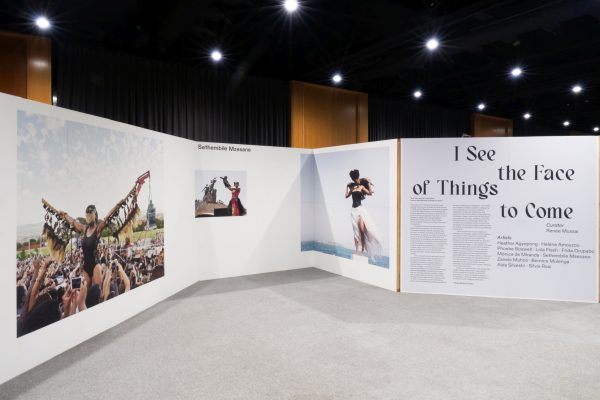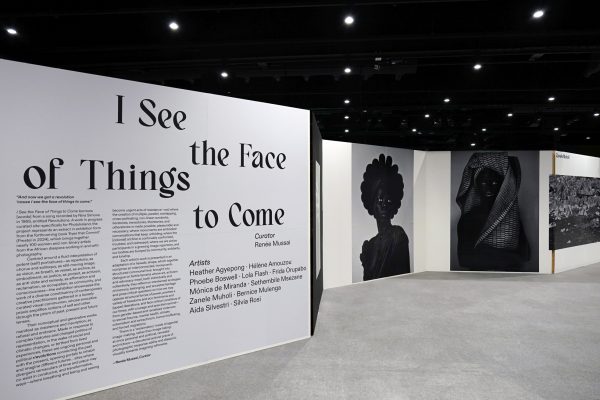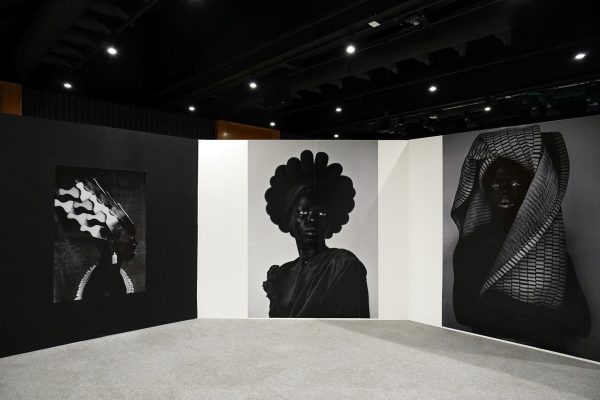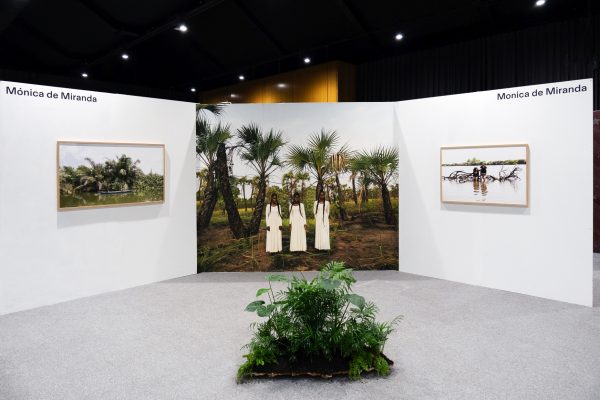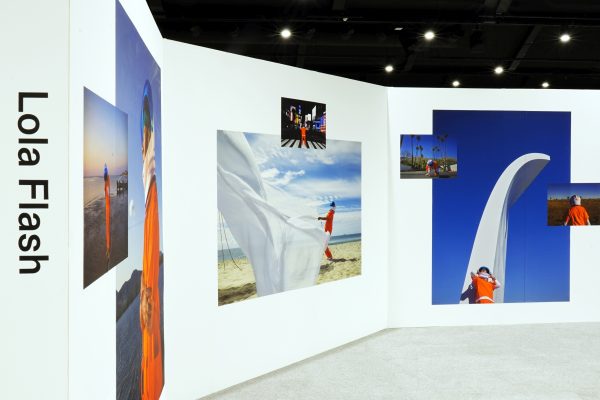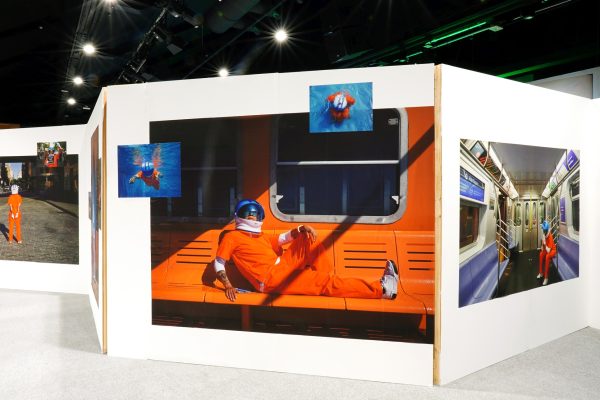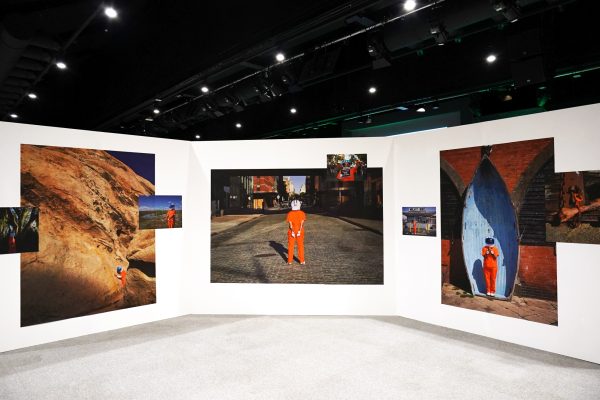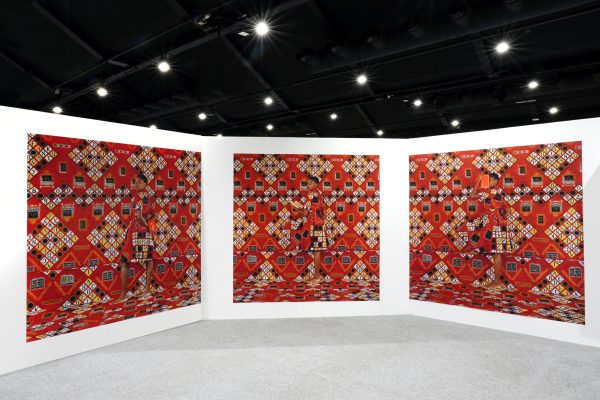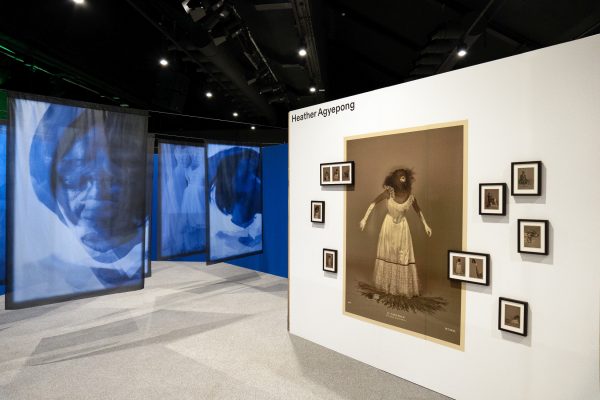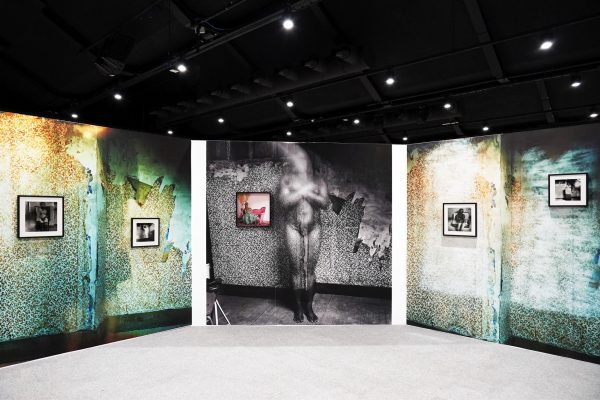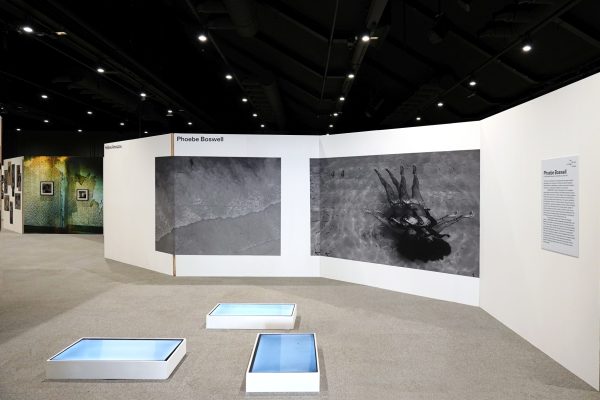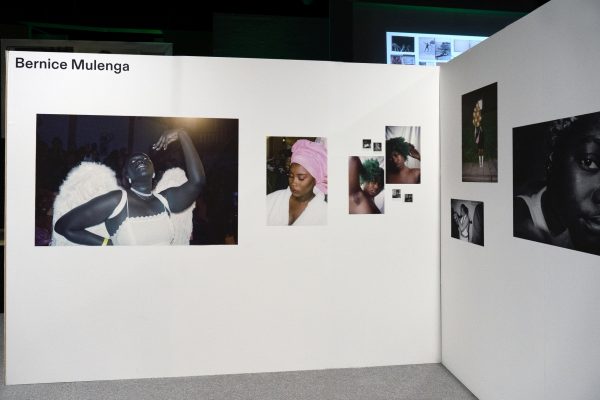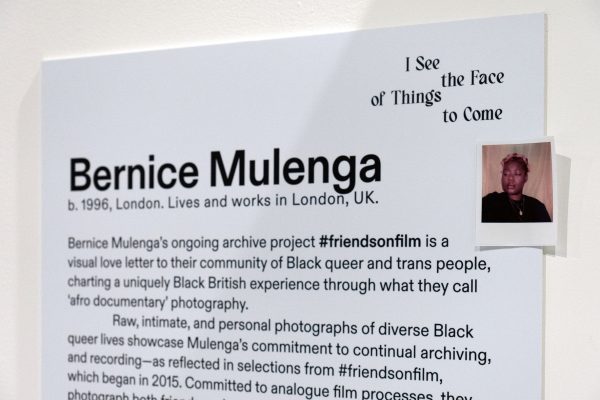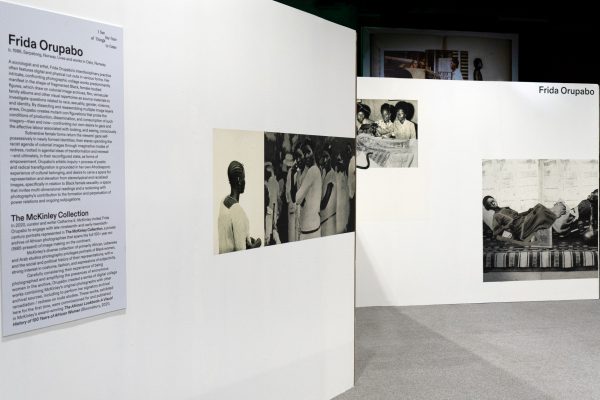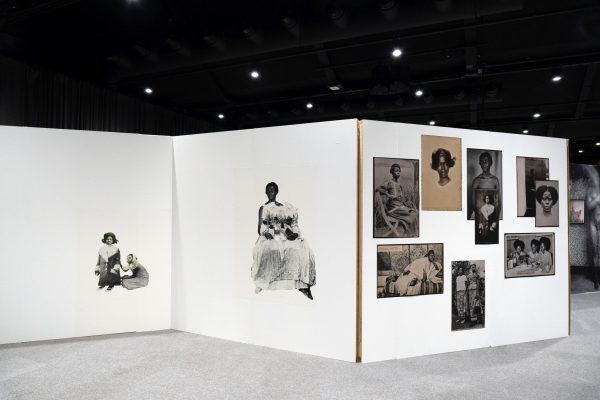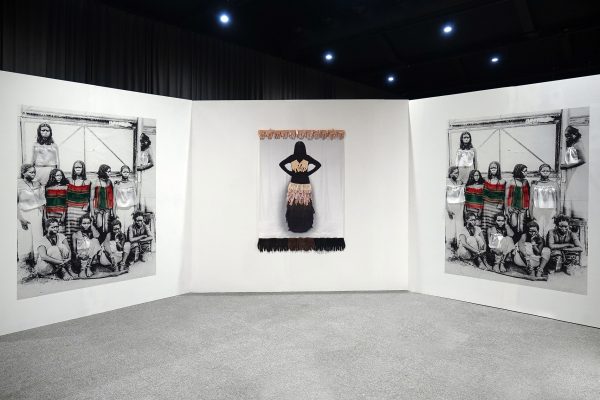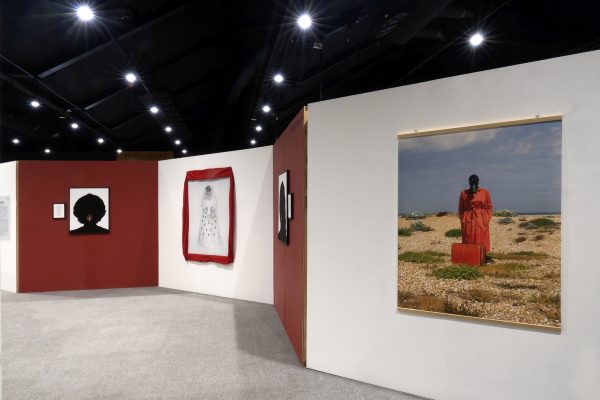Image: Mónica de Miranda, Whistle for the Wind, from the series The Island, 2022. Commissioned by Autograph. Courtesy of the artist.
Launch
6-8pm 30 June
Talk
2pm Sat 1 July
Lola Flash Book Launch
4pm Sat 1 July
Running
1-23 July
The Printworks
Dublin Castle,
Dame St, Dublin 2
Opening Hours
Mon-Sun 9am-5pm
Tickets
Standard: €5 allowing for a second visit.
MultiPass: €20 allowing for a +1 and limitless entry.
Free copy of magazine OVER Journal issue 1 with every ticket available at the Museum counter.
Note: Entry during Tsundoku Art Book Fair is free.






I See the Face of Things to Come
Aida Silvestri, Bernice Mulenga, Frida Orupabo, Heather Agyepong, Hélène Amouzou, Lola Flash, Mónica de Miranda, Phoebe Boswell, Sethembile Msezane, Silvia Rosi, Zanele Muholi
And now we got a revolution
‘cause I see the face of things to come.– Nina Simone
I See the Face of Things to Come borrows [words] from a song recorded by Nina Simone in 1969, entitled Revolutions. A work in progress curated site-specifically for PhotoIreland Festival, the project represents an extract in exhibition form from the forthcoming book ‘Eyes that Commit’ (Prestel, 2024) which brings together nearly 100 women and non-binary artists from the African diaspora working in and with photography.
Centred around a fluid interpretation of potent (self) portraitures—as repertoire, as chorus and soliloquy, as still-moving image, as vision, as breath, as vessel, as archive, as embodiment, as justice, as protest, as activism, as antidote and remedy, as affirmation and reclamation, as occupation, as community, and consciousness—the exhibition showcases the work of a diverse constituency of contemporary creative practitioners gathered in a loosely curated visual communion, whose evocative praxis amplifies notions of self and other through the prism of past, present and future tenses.
Each artist’s work is presented in an adaptation of a hexadic shape, which together comprise an interconnected, honeycomb-structured communal hive: brought into dialogue on fertile terrains where art, activism and advocacy meet, both individually and collectively, they reflect on intertwined ecologies of memory, belonging, and ancestral heritage and pose critical questions on how we may oppose structural forces of power, practise a variety of freedoms and eco-feminisms and [queer] liberations, and face critical conditions of our times, with courage and eyes that commit—from gender-based and racialised violences to sexual trauma, mental health, climate colonialism and extractivism, human trafficking, and forced migrations.
Theirs is a ‘reclaimatory’ mode of agential image-making, rather than image-taking: at once personal and political, remedial and riotous—a decolonial activist praxis of photographic response-ability and diasporic visuality towards imagining otherwise.
– Extract from Curatorial Introduction Text, by Renée Mussai
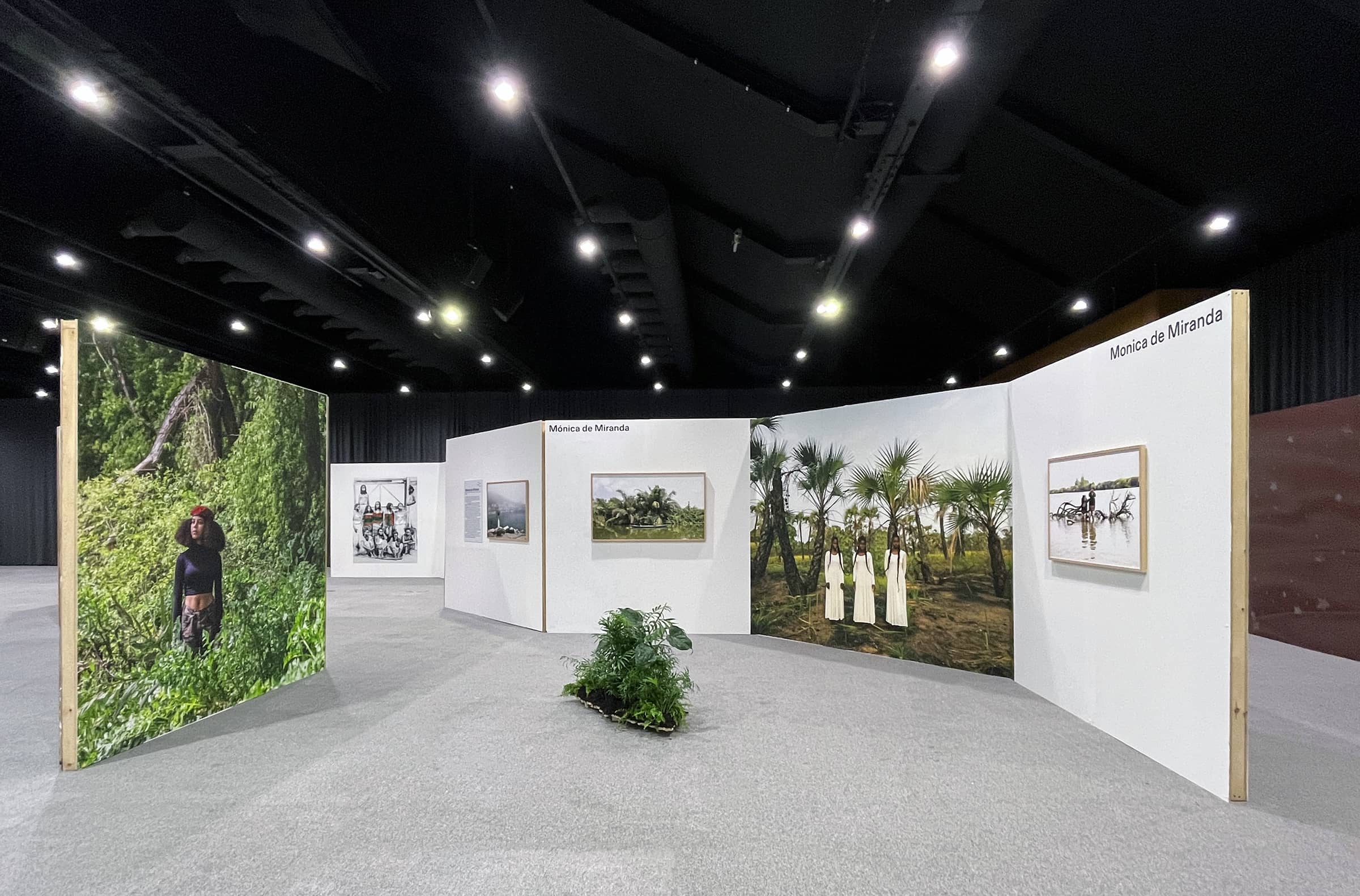
Installation of Mónica de Miranda, featuring works from ‘The Island’, 2022, commissioned by Autograph, and ‘Path to the Stars’, 2022. Part of the exhibition ‘I See the Face of Things to Come’ curated by Renée Mussai for PhotoIreland, and presented at The Printworks, Dublin Castle, with the kind support of OPW – Office of Public Works, The Arts Council / An Chomhairle Ealaíon, Dublin City Council, RTÉ, The British Journal of Photography, OVER Journal, The Digital Hub, Dublin, and with the expertise of our printing partner Inspirational Arts and Picture Bloc.
- Aida Silvestri
- Bernice Mulenga
- Frida Orupabo
- Heather Agyepong
- Hélène Amouzou
- Lola Flash
- Mónica de Miranda
- Phoebe Boswell
- Sethembile Msezane
- Silvia Rosi
- Zanele Muholi
- Renée Mussai
Aida Silvestri is an interdisciplinary artist and educator of Eritrean descent. She creates multi-faceted mixed media artworks that challenge the status quo of stigma, prejudice and social injustice. Silvestri’s socially-engaged activist practice amplifies marginalised voices, often highlighting displacement, race, class, identity and health, raising awareness of human rights issues and representational politics in the arts and beyond. Her work has been exhibited widely, including most recently in major group exhibitions at Haus der Kunst, Munich, Germany and FotoFest Biennale 2020, Houston, USA, and is held in numerous international private and public collections.
Bernice Mulenga is a British -Congolese photographer with a distinct aptitude for archiving, documenting and interrogating the world around them. Mulenga’s work centres on their community and the experiences within it—most notably in their ongoing photo series #friendsonfilm. Their work also explores reoccurring themes surrounding identity, sexuality, grief, darkness and family.
Frida Orupabo is a sociologist and artist living and working in Oslo, Norway. Her work consists of digital and physical collages in various forms, which explore questions related to race, family relations, gender, sexuality, violence and identity.
Heather Agyepong is a British Ghanaian visual artist, performer, actor and maker who lives and works in London. Her art practice is concerned with mental health and wellbeing, invisibility, the diaspora and the archive. Agyepong uses both lens-based practices and performance with an aim to culminate a cathartic experience for both herself and the viewer. She adopts the technique of re-imagination to engage with communities of interest and the self as a central focus within the image.
Agyepong has been nominated for Prix Pictet & Paul Huf Award in both 2016, 2018 & 2021. Her work exists in a number of collections including Autograph ABP, Centre national des arts plastiques, The Hyman Collection, Arts Council England, New Orleans Museum of Art, Bristol Museum & Art Gallery and Mead Art Museum. She has been commissioned by a number of organisations including the Mayor of London, Photoworks, Artichoke & Tate Exchange.
Heather was nominated for the South Bank Sky Arts Breakthrough Award 2018, awarded the Firecracker Photographic Grant 2020 and was selected as part of Foam Talent 2021, Jerwood/Photoworks Award 2022, Photo London x Nikon Emerging Photographer Award 2021, The Photographers Gallery New Talent Award 2021 and this years Open Walls Arles competition. Heather became a Nikon European Ambassador in 2022.
She is currently performing in award-winning play School Girls; Or The African Mean Girls in Lyric Hammersmith London till July 22nd.
Hélène Amouzou was born in Togo, West Africa, in 1969 and has been living in Brussels (Belgium) for the last twenty years. In 2004, she went to study photography and video at the Académie de Dessin et des Arts visuels of Molenbeek-Saint-Jean. Photography has proved to be the medium best suited for her artistic research and technical experiments. She prefers to work with film, which she sees as demanding greater attention to detail. Hélène Amouzou creates her own distinctive and haunting imagery, which speaks to the contemporary issue of the people in exile and of those invisibilised.
Lola Flash is working at the forefront of genderqueer visual politics for more than four decades, photographer Lola Flash’s work challenges stereotypes and gender, sexual, and racial preconceptions. An active member of ACT UP during the time of the AIDS epidemic in New York City, Flash was notably featured in the 1989 “Kissing Doesn’t Kill” poster. Their art and activism are profoundly connected, fuelling a life-long commitment to visibility and preserving the legacy of LGBTQIA+ and communities of colour worldwide. Flash has work included in important collections such as the Victoria and Albert Museum in London, MoMA, the Whitney, he Museum of the African American of History and Culture and the Brooklyn Museum. They are currently a proud member of the Kamoinge Collective, and on the Board of Queer Art.
Flash received their bachelor’s degree from Maryland Institute and Masters’ from London College of Printing, in the UK. Flash works primarily in portraiture, engaging those who are often deemed invisible. Flash’s practice is firmly rooted in social justice advocacy around sexual, racial, and cultural difference.
Mónica de Miranda is a Portuguese/Angolan visual artist, film-maker and researcher whose interdisciplinary and research-based practice critically looks at the convergence of politics, gender, memory, space and history. Her work encompasses drawing, installation, photography, film and sound, on the boundaries between documentary and fiction. Mónica investigates strategies of resistance, geographies of affection, storytelling and ecologies of care.
She is the founder of Hangar (2014), an art and research centre in Lisbon. Hangar’s programmes provide spaces where artists, curators and researchers mainly from the global can co-create and build social and creative networks to benefit their communities.
Her work has been presented at major international events such as:; 6th Lubumbashi Biennale; 12th Berlin Biennale; 12th Dakar Biennale; 5th Biennale Internationale de l’Art Contemporain de Casablanca; Bamako Encounters – 13th African Biennale of Photography; 14th Venice Architecture Biennale; BIENALSUR 2021; Houston FotoFest 2022;18th Fotografia Europea, Reggio Emilia.
Solo and group exhibitions have taken place at: CAIXA Cultural, Rio de Janeiro; Bildmuseet, Umeå; Kadist Art Foundation, Paris; Gulbenkian, Lisbon; MUCEM, Marseilles; AfricaMuseum, Tervuren; MAAT, Lisbon; MUAC, Mexico City; Barbican, London; Autograph, London; Frac pays de la Loire, Nantes; Uppsala Museum, Sweden; MNAC, Lisbon; Camões Cultural Institute, Luanda, among others.
Monica’s work features in public and private collections worldwide.
Phoebe Boswell (Kenya/UK) is a multidisciplinary artist who lives and works in London. She studied Painting at the Slade (2005) and 2D Animation at Central St Martins (2009) and her work has since been exhibited globally.
Underpinned by a transient and diasporic consciousness, Phoebe Boswell’s practice speaks from the porous space between here and there. She works intuitively across media, centering drawing but spanning animation, sound, video, writing, interactivity, performance and chorality. This tends to culminate in layered installations, which affect and are affected by the environments they occupy, by time, the serendipity of loops, and the presence of the audience. Aesthetics of figuration and representation through the radical imaginary of Black feminisms become tools for contemplating the body as world, worldmaking, rather than merely as object to be gazed at. Artmaking becomes a sensory and political act of service to community, where labour-intensive drawing practices, immersive technologies, and calls for collective participation denote a commitment of care for how we see ourselves and each other; how we grieve, how we love, how we rest, how we heal, how we protest, how we remember the past in order to imagine the future.
Sethembile Msezane was born in 1991 in KwaZulu Natal, South Africa. She lives and works in Cape Town, South Africa. She was awarded a Masters in Fine Arts in 2017 from the Michaelis School of Fine Art, University of Cape Town, where she also completed her Bachelor of Fine Arts in 2012.
Using interdisciplinary practice encompassing photography, painting, live works/embodiments, film, sculpture and installation. Msezane creates commanding works heavy with spiritual and political symbolism. The artist explores issues around spirituality, commemoration and African knowledge systems. She processes her dreams as a medium through a lens of the plurality of existence across space and time, asking questions about the remembrance of ancestry. Part of her work has examined the processes of mythmaking which are used to construct history, calling attention to the absence of the black female body in both the narratives and physical spaces of historical commemoration.
Msezane’s work has been widely exhibited across South Africa and internationally and was included in various exhibitions and museums that include the 14th Dak’art Biennale, Zeitz MOCAA (Cape Town), The Royal Ontario Museum (Canada), Oscar Niemeyer Museum (Brazil), PhotoIreland Festival (Ireland), and more.
Silvia Rosi (Scandiano, 1992) is an artist who lives and works between London and Lomè. She graduated in Photography at the London College of Communications in 2016. In her artistic practice she uses the photographic medium and moving images combined with text fragments to explore the space of memory and of (self)representation. Her images are informed by West African studio portraiture.
Her work has been published, among others by Foam and the British Journal of Photography and selected for international residencies such as Hangar (2023) and Thread Cultural Center and Residency (Sinthian, 2019). Her portraits have been awarded the Jerwood/Photoworks Awards (2020), the Vic Odden (2021) conferred by Royal Photographic Society. In 2022 she was selected among the finalists of the MAXXI BVLGARI prize. Her work has been exhibited in exhibitions including “Deep Blue” at Porto Photography Biennial (2023), “Screens. Screen Cultures and Moving Images” at MA*GA Museum (2022) and “In the Now – Gender and Nation in Europe” at LACMA (2021).
Zanele Muholi describes themself as a visual activist. From the early 2000s, they have documented and celebrated the lives of South Africa’s Black lesbian, gay, trans, queer and intersex communities.
Muholi studied advanced photography at the Market Photo Workshop in Newtown, Johannesburg, and completed an MFA in Documentary Media at Ryerson University in Toronto in 2009. Muholi co-founded the ‘Forum for the Empowerment of Women’ in 2002 and ‘Inkanyiso’, a forum for queer and visual media, in 2009.
Muholi is an honoree at the annual Spotlights benefit by New York’s International Center of Photography (2022); has been presented with France’s premier cultural award Chevalier de l’Ordre des Arts et des Lettres (2017); and honoured with the prestigious Prince Claus Award (2013).
Recent solo presentations have taken place at institutions including the Maison Européenne de la Photographie, Paris (2023); National Gallery of Iceland (2022); Kunstforeningen Gl Strand, Denmark (2022); Institut Valencià d’Art Modern, Spain (2022); Fotografihuset, Norway (2022); the Finnish Museum of Photography (2022); the Isabella Stewart Gardner Museum, Boston, USA (2022); Tate Modern, London (2021). Their work has been exhibited in May You Live in Interesting Times at the 58th Venice Biennale (2019); they produced a city-wide project titled Masihambisane – on Visual Activism for Performa 17, New York, USA (2017) and featured in the inaugural exhibitions at the Zeitz Museum of Contemporary Art Africa, Cape Town, South Africa.
Their book Somnyama Ngonyama: Hail, The Dark Lioness (Aperture) has won the 2019 ‘Best Photography Book Award’ by the Kraszna-Krausz Foundation.
Renée Mussai is a curator-scholar with a special interest in African and Afrodiasporic lens-based black feminist and queer visual arts practices. The former Senior Curator at Autograph, she is Artistic Director of The Walther Collection, an international New York-based arts foundation. Since 2009, Mussai has organised numerous solo and group exhibitions, and published widely on photography, visual culture and curatorial activism. Her recent books include the award-winning monograph Lina Iris Viktor: Some Are Born to Endless Night—Dark Matter (2020); Care, Contagion, Community—Self & Other (2021) and the forthcoming Eyes That Commit (Prestel, 2023) as well as the sequel to Zanele Muholi’s critically acclaimed Somnyama Ngonyama (Aperture, 2023). Mussai is a research associate at the Visual Identities in Art and Design Research Centre, University of Johannesburg; associate lecturer at University of the Arts London; and former guest curator and non-resident fellow at the Hutchins Center for African & African American Research at Harvard University.
